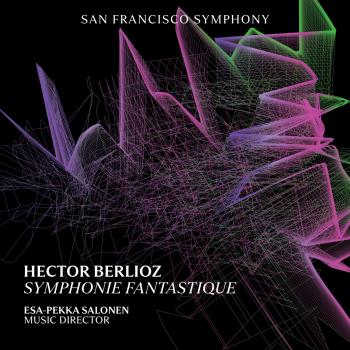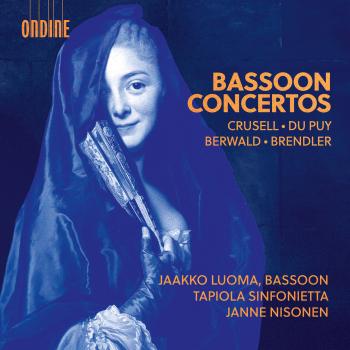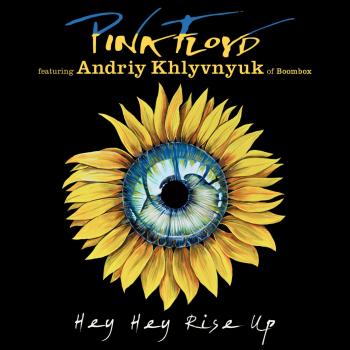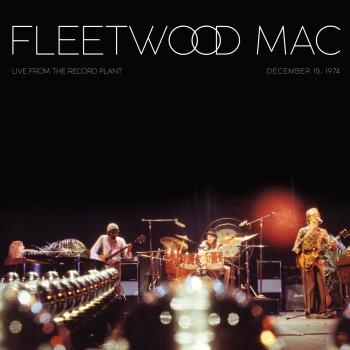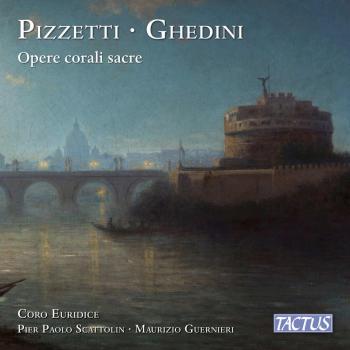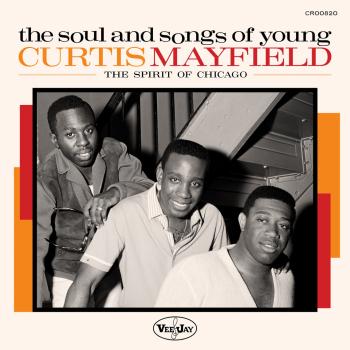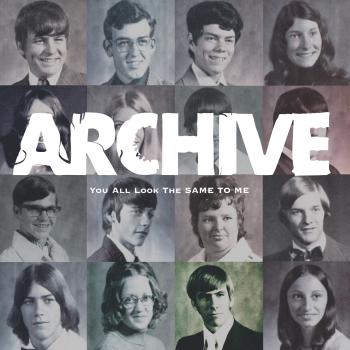
RESIST Midnight Oil
Album info
Album-Release:
2021
HRA-Release:
18.02.2022
Album including Album cover
I`m sorry!
Dear HIGHRESAUDIO Visitor,
due to territorial constraints and also different releases dates in each country you currently can`t purchase this album. We are updating our release dates twice a week. So, please feel free to check from time-to-time, if the album is available for your country.
We suggest, that you bookmark the album and use our Short List function.
Thank you for your understanding and patience.
Yours sincerely, HIGHRESAUDIO
- 1 Rising Seas 05:50
- 2 The Barka-Darling River 06:49
- 3 Tarkine 04:19
- 4 At the Time of Writing 04:39
- 5 Nobody's Child 04:28
- 6 To the Ends of the Earth 05:00
- 7 Reef 04:17
- 8 We Resist 05:19
- 9 Lost At Sea 04:45
- 10 Undercover 03:15
- 11 We Are Not Afraid 04:27
- 12 Last Frontier 06:53
Info for RESIST
2017 kehrten Midnight Oil nach längerer Auszeit mit einem Pub-Gig in Sydneys legendärem Club „Seline“ zurück. Mitten in diesem schweißtreibenden Set wandte sich Sänger Peter Garrett mit den Worten “Rage, rage, against the dying of the light” an sein Publikum. Er zitierte damit Dylan Thomas’ Gedicht ‘Die gute Nacht’, in dem der walisische Poet daran appelliert, sich auch im fortgeschrittenen Lebensalter Angriffslust und Konfliktbereitschaft zu bewahren. Die Band geht in dieser Hinsicht mit gutem Beispiel voran: Auf ihrer „Great Circle“-Tour spielten sie 77 ausverkaufte Shows in 16 Ländern, gingen auf Europatournee und lieferten dann noch einen unvergessenen Gig im Outback ab. Anschließend kehrten sie - zum ersten Mal nach 18 Jahren - wieder ins Tonstudio zurück, um dort 20 neue Songs aufzunehmen.
Der erste Teil der Songs, die dort entstanden, wurde unter dem Titel THE MAKARRATA PROJECT veröffentlicht und erreichte Platz Eins der australischen Charts. Unglücklicherweise wurde die Nachricht über diesen Erfolg vom Tod des langjährigen Bassisten Bones Hillmann überschattet, der am Wochenende des Charteinstiegs starb. Trotz dieses Schicksalschlages und einer globalen Pandemie konnten 2020 die Makkarrata-Liveshows wie angekündigt stattfinden. Hier trat die Band mit ihren musikalischen First-Nation-Mitstreitern auf, um auf das Uluru-Statement of The Heart aufmerksam zu machen, das die Ungleichbehandlung der indigenen Bevölkerung Australiens anprangert.
Das neue Album ist das Statement einer Band, die nach vorne blickt und deren Maxime immer lautete: „Es ist besser, auf den Füßen zu sterben, als auf den Knien zu leben“. Auf RESIST beschäftigen sich Midnight Oil wieder mit Themen, die uns alle angehen. So wird im Text der ersten Singleauskopplung ‘Rising Seas’ kompromisslos über den Klimawandel gesungen.
Gleichzeitig kündigte die Band an, dass dies die letzte Tour sein wird, auf der die Fans Midnight Oil live erleben können. Ein Ende der Band ist deshalb aber noch lange nicht in Sicht. Die Mitglieder verfolgen ihre eigenen Projekte weiter, bleiben offen für weitere Zusammenarbeit im Studio und werden gemeinsam für Belange eintreten, die ihnen am Herzen liegen.
Rob Hirst: “Wenn ich zurückblicke, sehe ich ein verschwommenes Bild, erkenne undeutlich Namen und Gesichter: Jim, Pete, Martin, Bear und ich spielen lauten Prog Rock in einer Garage in Chatswood; ich sehe den großartigen Giffo, wie er bei seinem ersten Gig im Royal Antler Hotel abrockt oder Bonesy, der Kopfhörer aufhat, singt und sich gerade unsere Songs draufschafft. Ich sehe unsere Manager in ihren Büros – Gary, Zev und John. Die Tourmanager Constance, Neil und Willie Mac in ihren Autos und Bussen; die Produzenten in ihren Studios: Keith, Lez, Glyn, Nick und Warne. Und ich sehe unsere Crew auf unzähligen Bühnen - Michael, Oysters, Ozzy, Doc, Nick, Jock, Gerry – und so viele andere. Ich sehe die Menschen, die die Welt noch nie zu Gesicht bekommen hat, obwohl sie unsere Maschine am Laufen halten: Stephanie, Wayne, Diana, Arlene, Jonesy, Craig, Geoff H, Chris P, Peter T und Mel C. Ich sehe unsere Frauen, unsere treuen Freunde und die winzigen Gesichtlein der ‘Baby Oils’, die unsere Shows verfolgen – von Sydney über Sao Paulo bis nach Saskatoon. Doch zuallererst sehen meine vom Bühnenlicht geblendeten Augen die ersten beiden Zuschauerreihen bei vielen hundert Gigs: die Midnight Oil-Fans, wie sie ihre Fäuste in die Luft recken, tanzen und so laut singen, dass sie die Band übertönen. Aber ich blicke nicht zurück.”
Peter Garrett: “Wir wissen alle, dass die Zeit nicht stillsteht. Aber nach vielen gemeinsamen Jahren ist der Bandspirit immer noch so stark wie unsere Musik und unsere Worte. Unsere Ideen und Aktionen sind so spektakulär, wie es uns möglich ist. Wir haben die Menschen auf Wegen erreicht, die wir uns nie hätten vorstellen können. Unser Drang, kreativ zu sein und unsere Stimme zu erheben, ist ungebrochen. Wir hoffen, dass jeder, der das Album hört oder eine der Shows besucht, sich um die Zukunft unseres Planeten Gedanken macht. Wir sind jede Tour so angegangen, als wäre es unsere letzte – und dieses Mal ist es wirklich so weit.”
Jim Moginie: “Seit unseren bescheidenen Anfängen im Jahr 1977 waren unsere Gigs physisch extrem intensiv und wir wollen nicht das geringste Risiko eingehen, dass etwas von dieser Intensität verloren geht. In den vergangenen fünf Jahren ist viel passiert. Wir haben viel erreicht und mit dem Ableben von Bones auch vieles verloren. Wir scheinen am Ende eines Zyklus angelangt zu sein. Die Gigs werden traurig sein und wunderbar zugleich. Zum Glück sind wir immer noch dazu in der Lage, jedes Haus ordentlich zu rocken und genau das haben wir auch vor. Man könnte es eine Abschiedstournee nennen, aber Midnight Oil werden in irgendeiner Form weiter existieren. Denn wir sind Brüder, wir sind eine Familie.”
Martin Rotsey: “Ein riesengroßes Dankeschön an alle Fans da draußen. Wir haben so vieles geteilt - die Nächte in den Pubs von Sydney oder die unter freiem Sternenhimmel. Eure Energie hat uns weitergebracht als wir je zu träumen wagten. Wir bedanken uns bei euch allen, egal ob ihr in der ersten Reihe mitten im Getümmel steht oder in den hinteren Reihen unsere Songs mitsingt. Wir bedanken uns bei den Fans auf der Bühne und hinter der Bühne - und bei denen, die uns bei der Rückkehr nach Hause empfangen haben – ihr habt es möglich gemacht, dass wir so weit gekommen sind.”
Midnight Oil
Midnight Oil
are more than just a rock ‘n’ roll band. From the northern beaches of Sydney to the streets of Manhattan, they have stopped traffic, inflamed passions, inspired fans, challenged the concepts of “business as usual” and broken new ground.
Seeing Midnight Oil in full flight is to experience the transcendent, kinetic power of live rock ‘n’ roll. They leave you inspired to live life more passionately and to Get Involved.
Everything about the band is uncompromising, but their greatest achievement is that they are, night after night and album after album, a great rock ‘n’ roll band. For all of the incredible growth, ambition and experimentation that Midnight Oil have evidenced, the sound and the fury and the spirit of their earliest recordings are still there 40 years later, on tracks like “White Skin Black Heart” and “Say Your Prayers”.
Rob Hirst (drums, vocals) and Jim Moginie (guitars, keys & vocals) started making music together at school in 1972. They gradually evolved into Midnight Oil, with singer Peter Garrett joining in 1975 and Martin Rotsey (guitar), coming on board in the following year. Founding bass player, Andrew “Bear” James, was replaced by Peter “Giffo” Gifford from 1980 until 1987 when Bones Hillman joined the band.
Before they took it global, Midnight Oil’s early spiritual home was the Royal Antler Hotel, Narrabeen on Sydney’s northern beaches. It was there that ‘the Oils’ fan base swelled from a handful to a thousand – in a space intended for half that number. Between 1976 and the very early 80’s, these five young men played out this blistering ritual almost 1000 times. At all of these shows the distance and the difference between audience and band was indistinguishable. From their earliest days, Midnight Oil was writing songs about who and what they saw around them.
The eponymous debut album, smartly nicknamed “The Blue Meanie” (equal parts a reference to the Beatles and the snarl of the sound), was released in 1978 and was a collection of primal, spiky rock ‘n’ roll. Like so many great debut albums it spoke directly about the milieu in which it was born (Sydney surf/suburbs culture) and was an in-studio approximation of their live set. The song “Run By Night” became an instant classic and despite receiving next to no commercial radio support, the album cracked the Australian Top 50. Midnight Oil was on its way.
A second album, “Head Injuries”, followed the next year featuring the singles “Cold Cold Change” and “Back on the Borderline” – the geography was a little broader, the subject matter a little more universal and the sound a little closer to their live energy.
Shortly after Head Injuries Andrew “Bear” James retired and the bass was picked up by Peter “Giffo” Gifford. Recalibrating their sound as they would do many times, the band’s new line-up released the 12″ “Bird Noises” EP (featuring “No Time For Games” and the sublime surf instrumental “Wedding Cake Island”).
Their ambitions growing, the band decamped to England to record the “Place Without A Postcard” album with legendary producer Glyn Johns (The Faces, The Who, The Rolling Stones). A dense, claustrophobic gem, “Place Without A Postcard” is arguably Midnight Oil’s first great album – defiantly articulating a broader Australian world view on tracks like “Armistice Day”, “Don’t Wanna Be The One” and the epic “Lucky Country”.
By the time “Place Without A Postcard” was released in 1981, the Australian pub rock scene was at its zenith. Suburban beer barns held 2,000 punters and the Oils were filling them nightly, creating rock ‘n’ roll chaos. Being an Oils fan wasn’t a part-time or passive experience.
Throughout all this the band wrote their own rules; refusing to appear on popular TV shows like Countdown and shunning all the ‘music biz’ norms. At the same time, Midnight Oil was becoming known for their support of environmental and social justice causes. The singular trail that they blazed set the tone for everything that followed.
In 1982, their fourth album “10, 9, 8, 7, 6, 5, 4, 3, 2, 1” turned everything on its head. Recorded as the band lived on the breadline in London in the shadow of the nuclear arms race and produced by an enthusiastic, irreverent 21 year old Nick Launay, (PIL, Gang of 4), 10-1 is rock ‘n’ roll paranoia at its finest. They deconstructed their sound and reassembled it into complex agitrock anthems like “Power And The Passion” where drums play against drum machines while thick warm waves of acoustic guitar lay a bed for the immensely unsettling “US Forces”. The lyrics captured a band who would not be boxed in by geography, precedent, corporations, government or the expectations of anyone. As Midnight Oil expanded their creative ambitions they also expanded their audience. The album was a monster success in Australia, staying in the Australians charts in excess of 200 weeks. It was also popular on US college radio and across pockets of Europe – as the band expanded its ambitions it also expanded its reach.
“Red Sails in the Sunset” came next. Recorded in Japan it took sonic experimentation and polemics to new and extreme levels. It was released in 1983 and loomed large on the charts through 1984 against the backdrop of singer Peter Garrett making a run for the Australian Senate on a Nuclear Disarmament platform. While Garrett focused on ‘real’ politics, Red Sails saw drummer Rob Hirst coming to the fore, assuming lead vocal duties on “When The Generals Talk” and “Kosciusko”.
In 1985, Midnight Oil performed an unforgettable live set on Sydney’s Me-mel (Goat Island) to celebrate the 10th birthday of music station 2JJ before reacting to the experimental extremes of their two previous albums with the fierce, streamlined EP “Species Deceases”, featuring enduring fan favourites like “Hercules” and “Progress”. This was a reset that suggested a new beginning.
That new beginning happened in 1986 when Midnight Oil was invited to tour through some of Australia’s most remote communities with legendary Aboriginal group, the Warumpi Band. The ‘Blackfella/Whitefella’ tour was a transformative experience that exposed the band to the austere beauty of the desert landscape, the inspiring creativity of the indigenous people and the deplorable conditions in which so many of those people existed.
The band returned to Sydney and began work on their global breakthrough “Diesel and Dust”. The singles lifted from that album like “The Dead Heart”, “Put Down That Weapon”, “Dreamworld” and, of course, “Beds Are Burning” brought Midnight Oil to new audiences around the globe. The band toured internationally through ‘87 and ’88 driving the album to huge critical and commercial success. It ultimately sold more than 6 million copies and earned them a Grammy nomination although the band declined to attend the ceremony in order to honour their commitment to a political event at home.
Among numerous other honours, “Beds Are Burning” is included in the U.S. Rock ’n’ Roll Hall of Fame as one of the “500 Songs That Shaped Rock ’n’ Roll”. “Diesel & Dust” was recently listed at #1 in the definitive book “100 Best Australian Albums”.
1990’s “Blue Sky Mining” saw tracks like “One Country,” “Blue Sky Mine,” and “Forgotten Years” bring an international orientation to the band’s song writing without losing any of their characteristically Australian voice. While touring the US after the album’s release, the band drew attention to the environmental disaster caused by an Exxon oil tanker that ran aground in Alaska. They hired a flatbed truck and played a blistering guerrilla set outside the Exxon offices in New York, stopping traffic and putting the issue on front pages worldwide. “Blue Sky Mining” was another globally successful album, charting top 5 in many parts of Europe and top 20 in the U.S.. Back home it won the band five ARIA Awards and was certified five times platinum.
Midnight Oil’s creative evolution continued with 1993’s “Earth and Sun and Moon” with its emphasis on melody, textures and storytelling. They toured the world on the WOMAD festival and were one of the first international artists to play in South Africa after Nelson Mandela came to power. These new experiences influenced 1996’s atmospheric album, “Breathe” which they recorded in Sydney and New Orleans. Then, in typically perverse fashion, the band veered away from these warm, dark, ambient textures to create arguably their most angry and confronting release – 1998’s “Redneck Wonderland”. In Australia, anti-migrant and anti-Aboriginal sentiment was being inflamed for political gain and Midnight Oil’s visceral response pulled no punches.
In 2000 the band performed to an audience of over a billion people at the closing ceremony of the Sydney Olympic Games revealing clothing emblazoned with the word, ‘SORRY’; thereby provoking global discussion about the apology due to stolen generations of Aboriginal children forcibly removed from their families between the 1890’s and 1970’s. That year they also recorded the excellent “Say Your Prayers”, an anthem for the East Timorese, which appeared on a benefit release and was stripped onto their 11th and final studio album, “Capricornia”. Aptly enough, this swag of songs drew heavily from their deep affection and appreciation of their Australian homeland.
In December 2002 Peter Garrett left the band to pursue a full time political career. He was elected in 2004 as a federal Member of Parliament where he would eventually serve as a cabinet Minister in various portfolios including School Education and Environment. Nonetheless in 2005 the Oils regrouped to headline the “Waveaid” tsunami benefit concert for over 50,000 people at the Sydney Cricket Ground. In 2009 the band topped a massive bill at “Sound Relief” at the Melbourne Cricket Ground where over 80,000 fans joined them in raising millions of dollars for victims of Australian fires and floods. Apart from these two iconic stadium appearances for charity (and a handful of intimate ‘warmup’ gigs immediately prior to each of them) the members played together in The Break and separately in other bands for over a decade. Then in May 2016 they made headlines with a surprise announcement via Facebook that they would be “getting back together for some gigs next year“.
On February 17, 2017 the band held a press conference on Sydney Harbour to announce that they would be playing shows around the world from April through November of that year. “The Great Circle” tour was accompanied by the release of three new box sets; one containing all their existing LP’s and EP’s, another containing all their existing CD’s and videos, plus a new 4 CD/8 DVD treasure trove of previously unreleased and rare material called “The Overflow Tank”.
As the tour name implied, “The Great Circle 2017” officially began with a surfside pub gig in Sydney and then looped around Brazil, North America, Europe and New Zealand before climaxing with a lap of Australia starting in the outback then heading around the coast . Over the course of those 7 months Midnight Oil played 77 gigs in 16 countries to over half a million fans. The shows shunned showbiz norms with the band rotating over 106 songs through their sets dropping apt cover versions and some surprise performances of whole albums to ensure every gig was truly unique.
Of course as “The Great Circle 2017” circumnavigated the globe it also drew attention to various issues affecting the planet. From a gig aboard Greenpeace flagship “Rainbow Warrior” in Rio De Janeiro’s harbour to an eco-friendly festival in the Czech Republic and Great Barrier Reef benefit shows in Cairns and Perth the tour saw Midnight Oil combining militance and music in their trademark manner.
The circle finally came to a close back where it all began – in their hometown where they played two epic shows. The venue? The Domain – Australia’s traditional home of political debate. The first date? November 11, known to some as Armistice Day.
Those who were there will never forget these climactic gigs. Thankfully they were recorded and filmed – and exactly a year later they were released as a movie and album called “Armistice Day: Live At The Domain, Sydney”, which debuted at #1 on the ARIA DVD Charts, and top 5 on the ARIA Album Charts.
In 2019, Midnight Oil headlined the world’s most remote music festival, the Big Red Bash – marking their first major Australian music festival appearance in 22 years. The band also performed a string of European shows for Summer in the Northern Hemisphere.
2020 saw the band announce their first new works in nearly 20 years. First up is a mini-album called The Makarrata Project on which all the songs share a strong focus on Indigenous reconciliation, and each features collaborations with the band’s First Nations friends. The late-October release seeks to elevate public awareness of ulurustatement.org/the-statement. The first single ‘Gadigal Land’ (feat. Dan Sultan, Joel Davison, Kaleena Briggs & Bunna Lawrie) went straight to #1 on the iTunes chart within hours of its release, with the video premiering the following night at the 2020 National Indigenous Music Awards.
The band has also announced that 2021 will see a new Midnight Oil album.
Midnight Oil is still more than just a rock ’n’ roll band. Their powerful and passionate story can best be heard in their music; but it has also been told in various books and films. It is a story that remains inextricably interwoven with the story of Australia and our place in the modern world.
This album contains no booklet.


